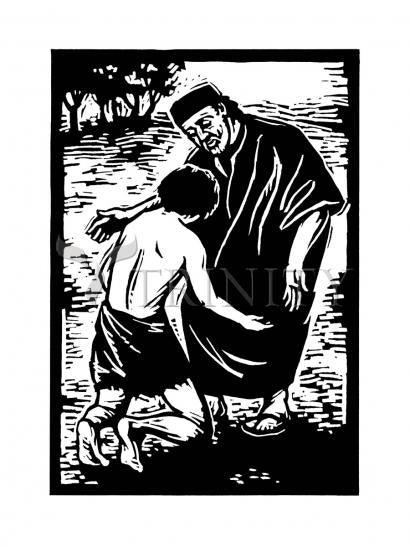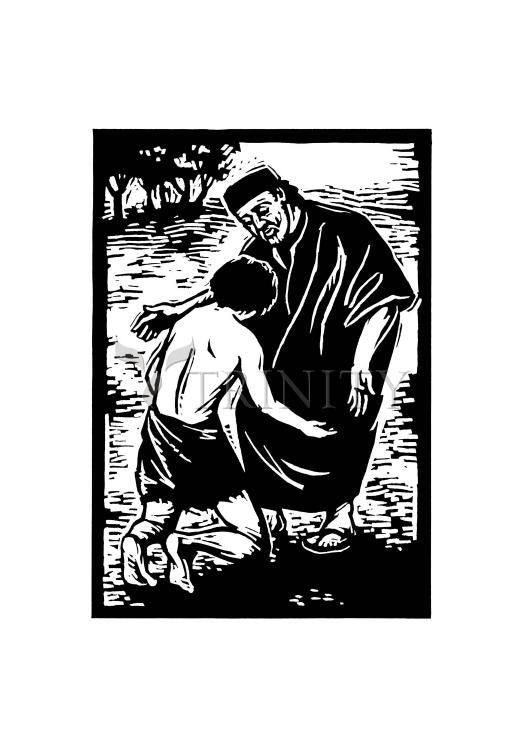Collection: Return of the Prodigal

-
Sale
Wood Plaque Premium
Regular price From $99.95 USDRegular priceUnit price per$111.06 USDSale price From $99.95 USDSale -
Sale
Wood Plaque
Regular price From $34.95 USDRegular priceUnit price per$38.83 USDSale price From $34.95 USDSale -
Sale
Wall Frame Espresso
Regular price From $109.95 USDRegular priceUnit price per$122.17 USDSale price From $109.95 USDSale -
Sale
Wall Frame Gold
Regular price From $109.95 USDRegular priceUnit price per$122.17 USDSale price From $109.95 USDSale -
Sale
Wall Frame Black
Regular price From $109.95 USDRegular priceUnit price per$122.17 USDSale price From $109.95 USDSale -
Sale
Canvas Print
Regular price From $84.95 USDRegular priceUnit price per$94.39 USDSale price From $84.95 USDSale -
Sale
Metal Print
Regular price From $94.95 USDRegular priceUnit price per$105.50 USDSale price From $94.95 USDSale -
Sale
Acrylic Print
Regular price From $94.95 USDRegular priceUnit price per$105.50 USDSale price From $94.95 USDSale -
Sale
Giclée Print
Regular price From $19.95 USDRegular priceUnit price per$22.17 USDSale price From $19.95 USDSale -
Custom Text Note Card
Regular price From $300.00 USDRegular priceUnit price per$333.33 USDSale price From $300.00 USDSale
ARTIST: Julie Lonneman
ARTWORK NARRATIVE:
Jesus said, "A man had two sons, and the younger son said to his father, 'Father, give me the share of your estate that should come to me.' So the father divided the property between them. After a few days, the younger son collected all his belongings and set off to a distant country where he squandered his inheritance on a life of dissipation. When he had freely spent everything, a severe famine struck that country, and he found himself in dire need. So he hired himself out to one of the local citizens who sent him to his farm to tend the swine. And he longed to eat his fill of the pods on which the swine fed, but nobody gave him any. Coming to his senses he thought, 'How many of my father's hired workers have more than enough food to eat, but here am I, dying from hunger. So he got up and went back to his father. While he was still a long way off, his father caught sight of him, and was filled with compassion. He ran to his son, embraced him and kissed him. His son said to him, 'Father, I have sinned against heaven and against you; I no longer deserve to be called your son.' But his father ordered his servants, 'Quickly bring the finest robe and put it on him; put a ring on his finger and sandals on his feet. Take the fattened calf and slaughter it. Then let us celebrate with a feast, because this son of mine was dead, and has come to life again; he was lost, and has been found.' Then the celebration began.
(Luke 15:11-17, 20-24)
- Art Collection:
-
Men & Women of the Bible
- Lonneman collection:
-
Scriptural Images
The Prodigal Son, also known as Two Sons, Lost Son, The Running Father and The Loving Father is one of the parables of Jesus. It appears in only one of the Canonical gospels of the New Testament. According to the Gospel of Luke (Luke 15:11-32), a father gives his two sons his inheritance before he dies. The younger son, after wasting his fortune (the word 'prodigal' means 'wastefully extravagant'), goes hungry during a famine. He then returns home with the intention of begging to be employed and renouncing his kinship to his father. Regardless, the father finds him on the road and immediately welcomes him back as his son and holds a feast to celebrate his return. The older son refuses to participate, stating that in all the time he has worked for the father, he did not even receive a goat to celebrate with his friends. The father reminds the older son that everything the father has is the older son's (his inheritance) but that they should still celebrate the return of the younger son. It is the third and final part of a cycle on redemption, following the Parable of the Lost Sheep and the Parable of the Lost Coin.
In Western Catholic tradition, this parable is usually read on the fourth Sunday of Lent (in Year C), while in the Eastern Orthodox Church it is read on the Sunday of the Prodigal Son.
The parable begins with a young man, the younger of two sons, who asks his father to give him his share of the estate. The implication is the son couldn't wait for his father's death for his inheritance, he wanted it immediately. The father agrees and divides his estate between both sons.
Upon receiving his portion of the inheritance, the younger son travels to a distant country and wastes all his money in extravagant living. Immediately thereafter, a famine strikes the land; he becomes desperately poor and is forced to take work as a swineherd. (This would have been abhorrent to Jesus' Jewish audience, who considered swine unclean animals.) When he reaches the point of envying the food of the pigs he is watching, he finally comes to his senses:
But when he came to himself he said, "How many hired servants of my father's have bread enough to spare, and I'm dying with hunger! I will get up and go to my father, and will tell him, 'Father, I have sinned against heaven, and in your sight. I am no more worthy to be called your son. Make me as one of your hired servants.'"
He arose, and came to his father. But while he was still far off, his father saw him, and was moved with compassion, and ran towards him, and fell on his neck, and kissed him.
Luke 15:17—20
The son does not even have time to finish his rehearsed speech, since the father calls for his servants to dress him in a fine robe, a ring, and sandals, and slaughter the "fattened calf" for a celebratory meal.
The older son, who was at work in the fields, hears the sound of celebration, and is told about the return of his younger brother. He is not impressed, and becomes angry:
But he answered his father, "Behold, these many years I have served you, and I never disobeyed a commandment of yours, but you never gave me a goat, that I might celebrate with my friends. But when this, your son, came, who has devoured your living with prostitutes, you killed the fattened calf for him."
Luke 15:29-30

















